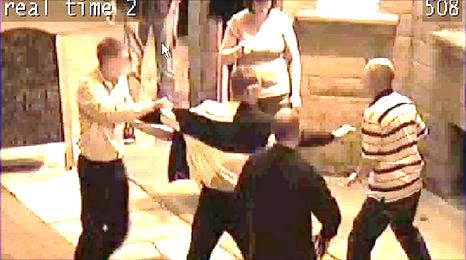Intervention in (inter)action: A video-based analysis of the role of third parties in interpersonal conflicts

Imagine you are walking down a street and you see two men arguing. As you are walking by, the conflict escalates and before you know it, the two men are engaged in a physical fight. What would you do? And does it matter if you try to stop the fight?
Systematically observing real-life fights
In his PhD project, Peter Ejbye-Ernst coded and analyzed the second-by-second development of surveillance footage of conflicts from the streets of Amsterdam to investigate what people do when they are in this situation. The findings are thus based on systematically observing real-life fights. Previous research has shown that in most conflicts in public spaces someone intervenes. But very little is known about what people do when they intervene and whether these courageous actions actually make a difference.
Outsiders influence requires a series of interventions
Ejbye-Ernst shows that the way that people intervene is influenced by the gender of the people fighting, the severity of the situation, their own past behaviors in the situation, and if they know any of the involved parties. People intervening in a fight are thus relying on a wide selection of social factors when they decide how to intervene. He found that intervening in a conflict influences the way the conflict develops, but that this influence requires multiple interventions and physically stepping in between the parties. This repeated intervention is needed because the fighting parties are typically very agitated and they will attempt to restart the conflict after getting separated.
Be decisive and persistent
Stopping a fight is thus rarely an easy task but rather requires persistence and a willingness to physically involve yourself. While this project can’t tell if someone should take action or not, it does point towards what is needed if you want to be successful in trying to stop a conflict from escalating further: you have to be decisive and persistent.
Publication details and further reading
Ejbye-Ernst, P. (2022). Intervention in (inter)action. A video-based analysis of the role of third parties in interpersonal conflicts. NSCR/UvA.
Promotor: Marie Rosenkrantz Lindegaard
Co-promotor: Wim Bernasco
Actuele berichten

